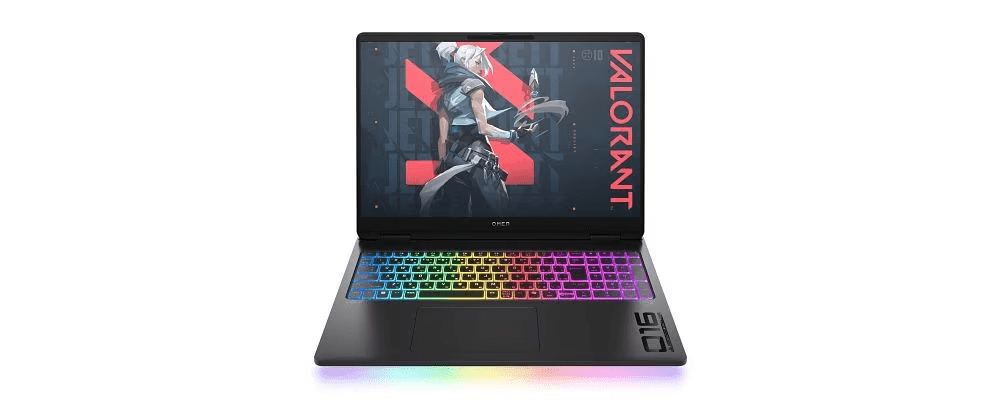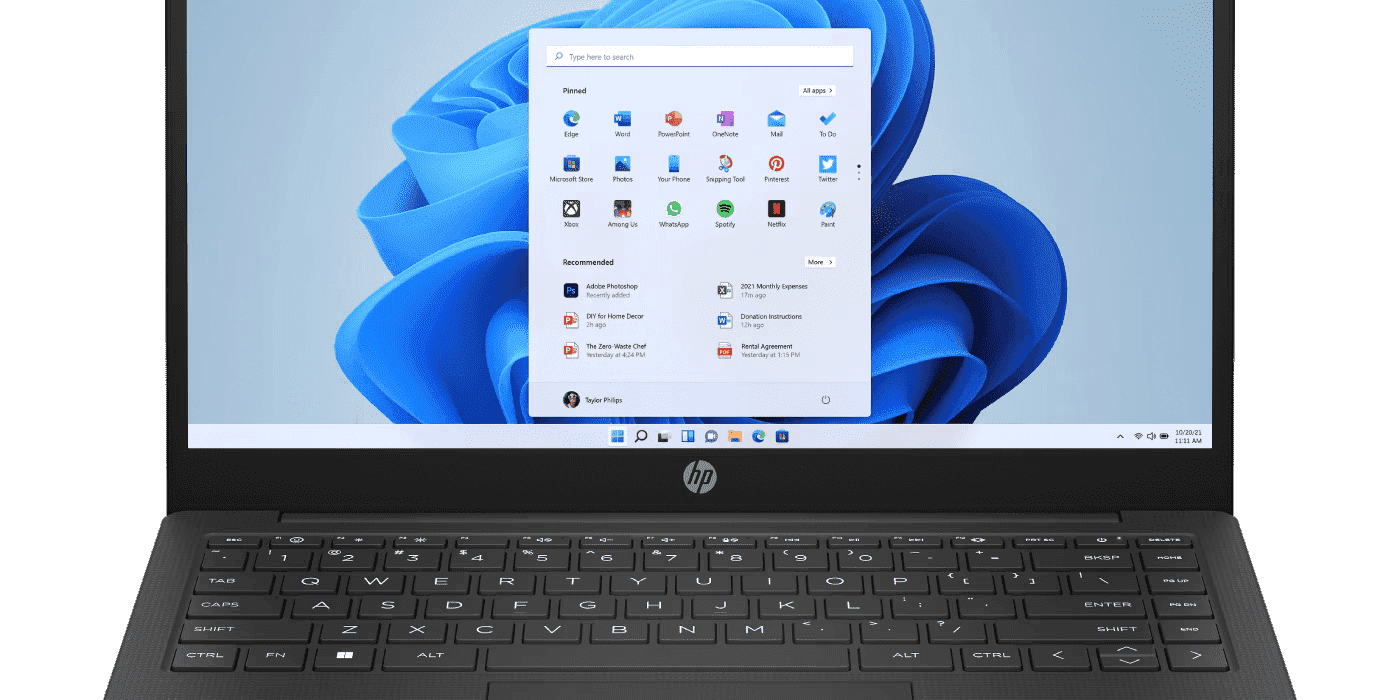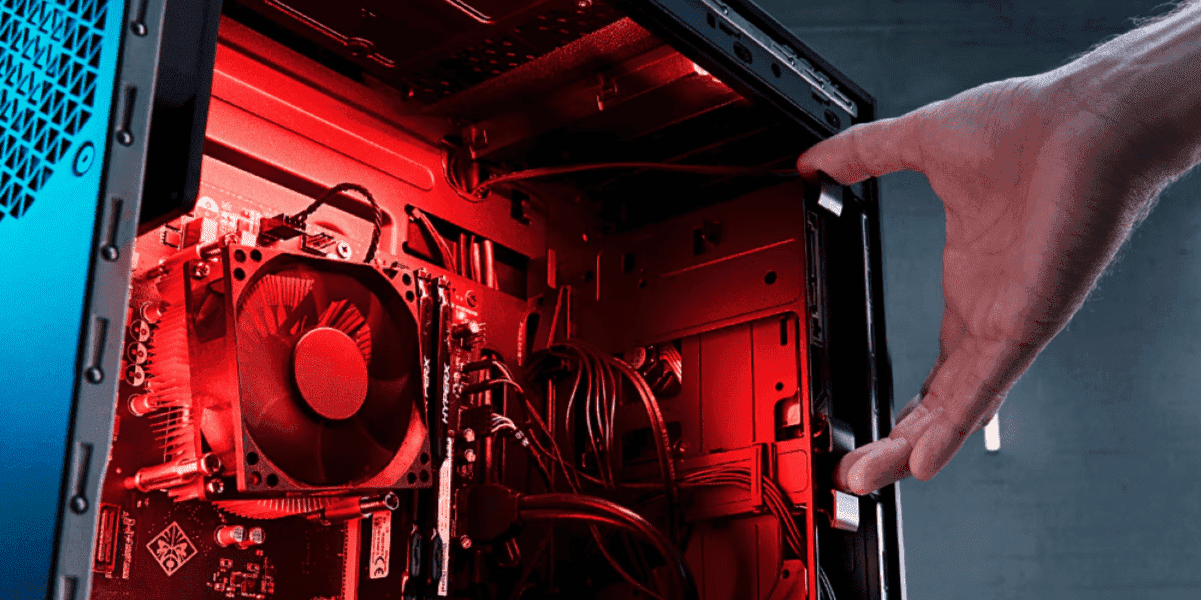Thank you for visiting the NEW ZEALAND HP Store
-
Contact Us
CONTACT USCall us
- Sales
- 0800 854 848
- Technical support
- +64 9884 8600
Mon-Fri 9.00am - 6.00pm
(exc. Public Holidays)
Chat with us- Our specialist are here to help
- Live chat
Mon-Fri 9.00am - 6.00pm
(exc. Public Holidays)
Submit feedback We value your opinion! - My Account
Top 10 Reasons Your Internet Is So Slow


Fast internet speeds help make it easier for us to get work done, while they also make gaming and other recreation more enjoyable. However, while network speeds are getting quicker overall, it does not guarantee your connection will always be fast.
Every now and then, you might wonder why your internet is slow, and there are numerous potential reasons. It could be anything from having a slow connection to too many people using the connection, but most are straightforward to fix.
Still, many people are left scratching their heads wondering, “why is my Wi-Fi so slow?” so we created this brief guide to help you find the answer.
- 1. You have a slow internet plan
- 2. Your router isn’t working efficiently
- 3. You are using old devices
- 4. Your network is public
- 5. You have too many devices online
- 6. You need to empty your browser history
- 7. You’re accessing a slow server
- 8. You are downloading
- 9. You have too many apps open
- 10. Your device has malware
- 1. You have a slow internet plan
- 2. Your router isn’t working efficiently
- 3. You are using old devices
- 4. Your network is public
- 5. You have too many devices online
- 6. You need to empty your browser history
- 7. You’re accessing a slow server
- 8. You are downloading
- 9. You have too many apps open
- 10. Your device has malware
1. You have a slow internet plan
Internet plans come available to suit people of different budgets and needs. As such, if you’re asking, “why is my internet speed so slow today?” The answer could be that the plan you’re paying for doesn’t allow higher speeds.
If your internet is slow, check with your service provider to see which plan you’re on. It should be no problem for you to upgrade at an affordable price in most cases. However, upgrading is not easy for many people. For example, people living in areas without fibre optic infrastructure cannot upgrade their plan until their internet service provider (ISP) has laid the necessary cables.
Don’t forget that what was just fine a couple of years ago may not be enough for you today. Websites and other online assets become more complex as technology develops, and you will need to upgrade your internet speed occasionally to keep up.
You might also have a slow internet speed because ISPs are not always honest with advertised network speeds. It’s not uncommon for lines to be heavily oversubscribed, meaning they rarely deliver the maximum speed as advertised.
2. Your router isn’t working efficiently
Your router is responsible for ensuring your machines have access to the internet. If your devices aren’t getting a signal, your network speeds will be slow, if you even have a connection at all. There are various reasons for this:
-
Your router is too far away: Routers have a limited range, so you will have a weak signal if it is too far away. Consider moving the router closer or buy more if needed to extend your Wi-Fi’s range.
-
The signal is blocked: Walls, furniture, and other items can block the signal from a router to your device. Where possible, it’s best to locate your router in a location where the signal can transmit a signal without hindrance.
-
Old hardware or firmware: The internet has been around for some time, so there is some old hardware around. You might need to buy a new router, while updating the firmware may also help.
-
Reboot: If your internet is slow, it might be because your router has been switched on for a long time. Switching the router off for a couple of minutes before turning it back on again will often speed things up.
3. You are using old devices
The internet has developed at a blistering pace, and what used to be state-of-the-art has since become obsolete. Some people are keen to buy the latest new smartphones or other devices as soon as they are released. However, many others will happily hold onto their older models that offer all they need. Unfortunately, this might mean you can’t take advantage of accelerating internet speeds, potentially leading people to ask: “why is my Wi-Fi so slow?”
If you want to take advantage of the latest internet technology, you might need to trade your old devices for newer technology. Not only will upgrading help you get faster network speeds, but it will also likely give you access to more apps and other new technology.
4. Your network is public
If your network is set to public, other people can log in and use your internet without a password. Unfortunately, with other people using your connection, you can expect much of the bandwidth to be used up on movies, games, and other online activities, leaving you without sufficient bandwidth.
Another reason to keep your network private is security. Otherwise, it will be easier for hackers to access your machine and potentially steal valuable personal data.
Setting a secure password will help ensure your network remains private. By limiting how many people can use your connection, you will have more bandwidth to yourself, boosting your internet speeds. A secure password will also help keep your sensitive data safe.
5. You have too many devices online
Internet bandwidth is finite and must be shared with other devices online. The more devices online, the less bandwidth each device will have, decreasing speeds.
If your internet is suddenly slow, it’s a good idea to look at what other devices you have switched on and online. In many households, there will be more than one person online at different times throughout the day. So you might need to ask others to log off if you need a fast connection urgently.
Online devices can also take up bandwidth even if you’re not using them, making it a good idea to turn off any devices you aren’t using.
6. You need to empty your browser history
As you surf the internet, your browser keeps a history of every website and page you’ve visited. Keeping a record this way can be very useful, but it’s not without drawbacks. One such drawback is that a full browser history can be the reason behind a slow internet speed.
Fortunately, there’s an easy solution to the problem. All you need to do is delete your browsing history, and your speeds will hopefully return to normal again. While you’re at it, it’s also a good idea to clear out your cookies.
Not only will clearing your browser history help to increase speeds in many cases, but it can also boost your privacy and security. For example, an empty browser history will give somebody less information about your online activities should they hack your machine.
7. You’re accessing a slow server
Your device can only load websites as fast as it receives the data. So, if the data is not reaching you quickly, it can take a long time, even for a single page to open. One of the most common reasons a particular website is slow to send data is that it is located on an outdated server.
To find out if the server is the problem, you can try accessing other websites to see how fast they are. While the results might not be conclusive, you know things are probably okay at your end if other websites are loading quickly.
Unfortunately, you can’t do anything to get faster access to a website if a slow server limits internet speeds. So instead, you will have to wait it out and maybe try sending a message to the site administrator.
8. You are downloading
Modern internet lets us download large files at impressive speeds. However, while downloading a new movie, you will be taking up much of your bandwidth, which could cause your internet to suddenly slow down. In addition, downloading will be especially problematic if more than one person is downloading simultaneously.
You can overcome the issue in many cases, and upgrading your connection will often help ease the problem. Or, of course, you can pause any downloads, giving you back your full bandwidth. Many people will download overnight or at other times when they are not using their device, especially for large files.
9. You have too many apps open
Browsing the internet requires processing power from your device, whether a top-end gaming machine or a smartphone. Unfortunately, if you are using too many of your machine’s resources, there’s not enough left to ensure your machine can process internet data quickly.
Of course, the internet is not the only resource that takes computing power – apps and programs also do. Therefore, if you have too many apps open on your device, they can drain your computer’s resources to the point where you might ask, “why is my Wi-Fi so slow?”
10. Your device has malware
Malware, like viruses and worms, is everywhere, so it’s a good idea to use software that will help keep you protected. If not, you can become infected, and a malware infection can cause all sorts of problems.
Some types of malware can allow nefarious characters to access your personal data, and others can cause a device to stop working altogether. Many others are less risky but still inconvenient as they can drain your resources, potentially causing a slow internet speed.
If you suspect malware is making your internet suddenly slow, you should perform a full system scan as soon as possible. In many cases, anti-malware software will not only detect the problem for you but also remove it altogether. With the malware gone, your device will likely be safer and faster.
Remember also that prevention is the best cure, so make sure your device has anti-malware software installed and running to help keep you safe. Such software will usually run in the background, barely noticed most of the time.
1. You have a slow internet plan
Internet plans come available to suit people of different budgets and needs. As such, if you’re asking, “why is my internet speed so slow today?” The answer could be that the plan you’re paying for doesn’t allow higher speeds.
If your internet is slow, check with your service provider to see which plan you’re on. It should be no problem for you to upgrade at an affordable price in most cases. However, upgrading is not easy for many people. For example, people living in areas without fibre optic infrastructure cannot upgrade their plan until their internet service provider (ISP) has laid the necessary cables.
Don’t forget that what was just fine a couple of years ago may not be enough for you today. Websites and other online assets become more complex as technology develops, and you will need to upgrade your internet speed occasionally to keep up.
You might also have a slow internet speed because ISPs are not always honest with advertised network speeds. It’s not uncommon for lines to be heavily oversubscribed, meaning they rarely deliver the maximum speed as advertised.
2. Your router isn’t working efficiently
Your router is responsible for ensuring your machines have access to the internet. If your devices aren’t getting a signal, your network speeds will be slow, if you even have a connection at all. There are various reasons for this:
-
Your router is too far away: Routers have a limited range, so you will have a weak signal if it is too far away. Consider moving the router closer or buy more if needed to extend your Wi-Fi’s range.
-
The signal is blocked: Walls, furniture, and other items can block the signal from a router to your device. Where possible, it’s best to locate your router in a location where the signal can transmit a signal without hindrance.
-
Old hardware or firmware: The internet has been around for some time, so there is some old hardware around. You might need to buy a new router, while updating the firmware may also help.
-
Reboot: If your internet is slow, it might be because your router has been switched on for a long time. Switching the router off for a couple of minutes before turning it back on again will often speed things up.
3. You are using old devices
The internet has developed at a blistering pace, and what used to be state-of-the-art has since become obsolete. Some people are keen to buy the latest new smartphones or other devices as soon as they are released. However, many others will happily hold onto their older models that offer all they need. Unfortunately, this might mean you can’t take advantage of accelerating internet speeds, potentially leading people to ask: “why is my Wi-Fi so slow?”
If you want to take advantage of the latest internet technology, you might need to trade your old devices for newer technology. Not only will upgrading help you get faster network speeds, but it will also likely give you access to more apps and other new technology.
4. Your network is public
If your network is set to public, other people can log in and use your internet without a password. Unfortunately, with other people using your connection, you can expect much of the bandwidth to be used up on movies, games, and other online activities, leaving you without sufficient bandwidth.
Another reason to keep your network private is security. Otherwise, it will be easier for hackers to access your machine and potentially steal valuable personal data.
Setting a secure password will help ensure your network remains private. By limiting how many people can use your connection, you will have more bandwidth to yourself, boosting your internet speeds. A secure password will also help keep your sensitive data safe.
5. You have too many devices online
Internet bandwidth is finite and must be shared with other devices online. The more devices online, the less bandwidth each device will have, decreasing speeds.
If your internet is suddenly slow, it’s a good idea to look at what other devices you have switched on and online. In many households, there will be more than one person online at different times throughout the day. So you might need to ask others to log off if you need a fast connection urgently.
Online devices can also take up bandwidth even if you’re not using them, making it a good idea to turn off any devices you aren’t using.
6. You need to empty your browser history
As you surf the internet, your browser keeps a history of every website and page you’ve visited. Keeping a record this way can be very useful, but it’s not without drawbacks. One such drawback is that a full browser history can be the reason behind a slow internet speed.
Fortunately, there’s an easy solution to the problem. All you need to do is delete your browsing history, and your speeds will hopefully return to normal again. While you’re at it, it’s also a good idea to clear out your cookies.
Not only will clearing your browser history help to increase speeds in many cases, but it can also boost your privacy and security. For example, an empty browser history will give somebody less information about your online activities should they hack your machine.
7. You’re accessing a slow server
Your device can only load websites as fast as it receives the data. So, if the data is not reaching you quickly, it can take a long time, even for a single page to open. One of the most common reasons a particular website is slow to send data is that it is located on an outdated server.
To find out if the server is the problem, you can try accessing other websites to see how fast they are. While the results might not be conclusive, you know things are probably okay at your end if other websites are loading quickly.
Unfortunately, you can’t do anything to get faster access to a website if a slow server limits internet speeds. So instead, you will have to wait it out and maybe try sending a message to the site administrator.
8. You are downloading
Modern internet lets us download large files at impressive speeds. However, while downloading a new movie, you will be taking up much of your bandwidth, which could cause your internet to suddenly slow down. In addition, downloading will be especially problematic if more than one person is downloading simultaneously.
You can overcome the issue in many cases, and upgrading your connection will often help ease the problem. Or, of course, you can pause any downloads, giving you back your full bandwidth. Many people will download overnight or at other times when they are not using their device, especially for large files.
9. You have too many apps open
Browsing the internet requires processing power from your device, whether a top-end gaming machine or a smartphone. Unfortunately, if you are using too many of your machine’s resources, there’s not enough left to ensure your machine can process internet data quickly.
Of course, the internet is not the only resource that takes computing power – apps and programs also do. Therefore, if you have too many apps open on your device, they can drain your computer’s resources to the point where you might ask, “why is my Wi-Fi so slow?”
10. Your device has malware
Malware, like viruses and worms, is everywhere, so it’s a good idea to use software that will help keep you protected. If not, you can become infected, and a malware infection can cause all sorts of problems.
Some types of malware can allow nefarious characters to access your personal data, and others can cause a device to stop working altogether. Many others are less risky but still inconvenient as they can drain your resources, potentially causing a slow internet speed.
If you suspect malware is making your internet suddenly slow, you should perform a full system scan as soon as possible. In many cases, anti-malware software will not only detect the problem for you but also remove it altogether. With the malware gone, your device will likely be safer and faster.
Remember also that prevention is the best cure, so make sure your device has anti-malware software installed and running to help keep you safe. Such software will usually run in the background, barely noticed most of the time.
- Sales
- 0800 854 848
- Technical support
- +64 9884 8600
Mon-Fri 9.00am - 6.00pm
(exc. Public Holidays)
- Our specialist are here to help
- Live chat
Mon-Fri 9.00am - 6.00pm
(exc. Public Holidays)








